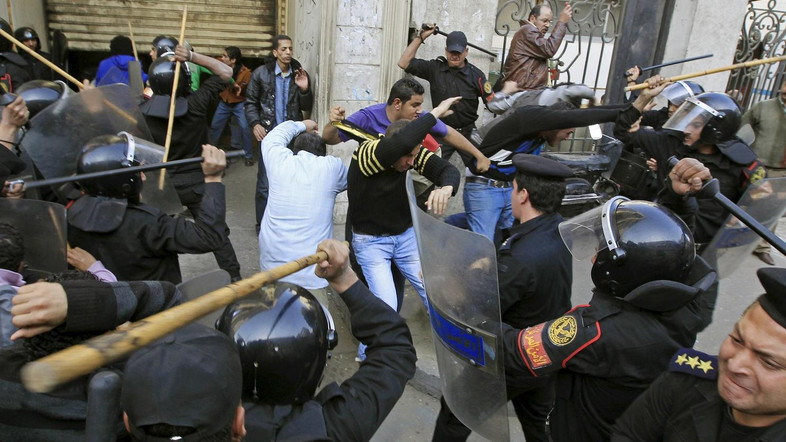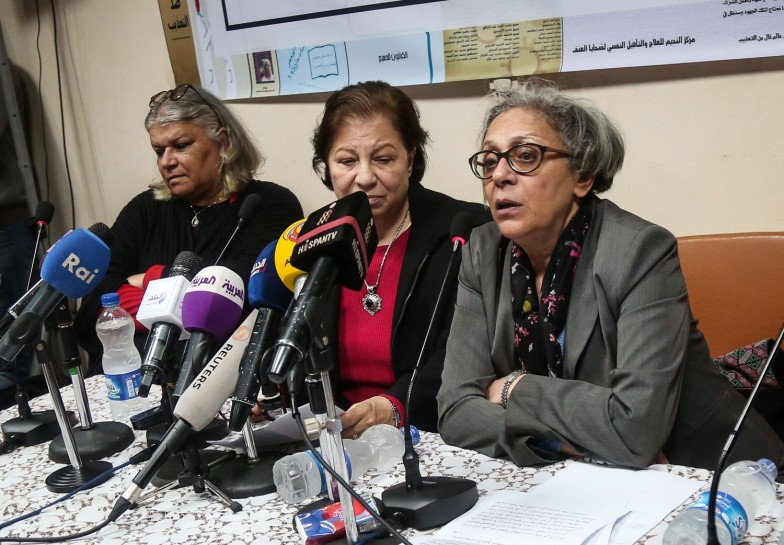Quelle: Huffington Post
Egypt Shuts Down Center Documenting Torture
Tanya Monforte
The closing of the Nadeem Center for the Rehabilitation of Victims of Torture comes on the heels of the death of Giulio Regeni, a scholar researching the labor movement in Egypt, who was found having been brutally tortured to death in a manner “frequently associated with the Egyptian security forces.” As international pressure mounts over his death, the Egyptian government shut down the Nadeem Center, citing “license violations.”
The Nadeem Center in conjunction with providing psychological treatment for victims of torture, has been one of the most systematic documenters and critics of the practice of torture in Egypt noting that telling a person’s story “may be the most important goal for the victim” who feels otherwise “helpless”. Founder and one of the directors of the Center, Dr. Aida Seif el Dawla is the recipient of the Alkarama award for human rights defenders. She understands torture the way an arson expert understands fire. She expertly reads the methods of torture, what they mean and the ways torture functions in Egypt. Although to my knowledge the Center has not issued any statements about Regeni’s death, they have issued reports about the use of torture in each political regime from Mubarak to Morsi to Sisi.
As Dr. Aida stated in a recent interview, the state is becoming bolder in who can be targeted for state reprisals claiming, “no one is safe anymore.” The murder of Regeni is not an isolated or random incident, even if it appears to be an inexplicable case of a foreigner being tortured to death. Anyone searching for a rational “explanation” for Regeni’s death by looking for a perpetrator or a directive from a state official misunderstands the menace torture poses in Egypt and the difficulty of tracing it. As the Nadeem Center’s work has shown, it is a practice in its randomness is systematic and rational. Torture must be tolerated by the state for it to flourish on such a wide scale while its unpredictability makes it an extremely effective tool of control.
Torture as widespread as it is in Egypt and employing the methods such as electrocution requires space and tools betraying state complicity and state practice. As Dr. Aida said in an interview, “Policemen don’t pay for torture tools and rooms from their salaries” these are provided by the state.
A foreign researcher, Regeni’s death fits into a larger state policy targeting the academy at the moment and threatening foreign intervention that takes the form of ideas and research. The government has stepped up control of the borders to keep foreign dissent out. Several foreign students and professors working on “sensitive issues” have recently been denied visas or turned away at the border without explanation.
The assumption that a Western passport gives a high level of protection in Egypt is both correct as well as misleading. It is not surprising that reports on Regeni’s death included vehement denials that he was working for the State during the Arab Spring and since has relied on claims that foreign governments are behind protests as a way to discredit demonstrations and dissent. Anti-American rhetoric in particular was rampant the summer of 2013 when Andrew Pochter, an American student teaching English, was murdered during a protest in Alexandria. It is not clear he was targeted specifically because he was American. However, earlier that year an American man was almost killed in an attack outside the U.S. Embassy in Cairo when he was stabbed in the neck. The assailant asked him twice before pulling out the knife whether or not he was American.
Foreigners working on Egypt are considered suspicious not necessarily because the governments believes they are foreign intelligence, but because their passports have given them a degree of immunity their Egyptian counterparts do not enjoy. That power has made them an outlier in an ever-shrinking space for free speech. Spreading the idea that any foreigner who knows Arabic too well or is in any way critical of government policies works on behalf of a foreign government is a convenient way to discredit a small pocket of criticism.
From my experience directing a human rights M.A. program in Cairo, most of the “threatening” foreigners had read more Edward Said than Henry Kissinger. They are deeply idealistic and aware of international power dynamics and inequalities. Their interests tend to originate from solidarity with the people rather than a desire to exert control over the government. Driven by hope for a better world, they are in this sense no different from their Egyptian counterparts rotting in prison cells, or being broken in interrogation rooms. There is now one more way in which they are no different from their Egyptian counterparts: they are no longer immune to the worst forms of state repression.
Even if there is never a shred of evidence linking the murder of Regeni to the government, like so many Egyptians, Giulio Regeni was tortured and killed because there is a general structure that allowed it to take place. Neither the closing of the Nadeem Center nor the murder of a foreign academic were incidental. Idealism is itself the threat and the Sisi government is finding new ways to kill it until no one will be able to speak out.
:::::
siehe auch: Al Arabiya
Egypt threatens to shut down center documenting torture
For more than two decades, a team of psychiatrists in downtown Cairo have provided a unique service in Egypt: Therapy for people who say they are victims of torture.

The move against the Nadeem Center is part of an effort targeting a number of rights groups and non-governmental organizations that has raised sharp criticism of Egypt at home, as well as from the United States and Europe. (Reuters)
Now authorities are trying to shut down the Nadeem Center, housed in an apartment building off a street full of auto parts dealers and mechanics. Twice in the past three months, most recently on Wednesday, police have stormed in with closure orders. So far, the center has managed to ward them off while its lawyers protest.
Its founders, however, fear the government is determined to eliminate an organization that, beyond helping victims, produces detailed documentation of police torture. Those accounts contrast starkly with officials’ repeated denials that such abuses take place, except in rare, individual cases.
Last year, the center tallied around 600 cases of police torture and almost 500 people killed by security forces, 100 of them while incarcerated.
“I haven’t seen a worse situation than what we have now — the violations, the impunity, the defiance” by police, said Aida Seif el-Dawla, a psychiatrist and one of the center’s co-founders.
“They keep repeating that there is no torture, that there are no forced disappearances, as if this would somehow make it a valid statement,” she said.
The move against the Nadeem Center is part of an effort targeting a number of rights groups and non-governmental organizations that has raised sharp criticism of Egypt at home, as well as from the United States and Europe.

Aida Seif el-Dawla , Suzan Fayyad, center, and Magda Adly, right, co-founder of El Nadeem Center for Rehabilitation of Victims of Violence. (AP)

